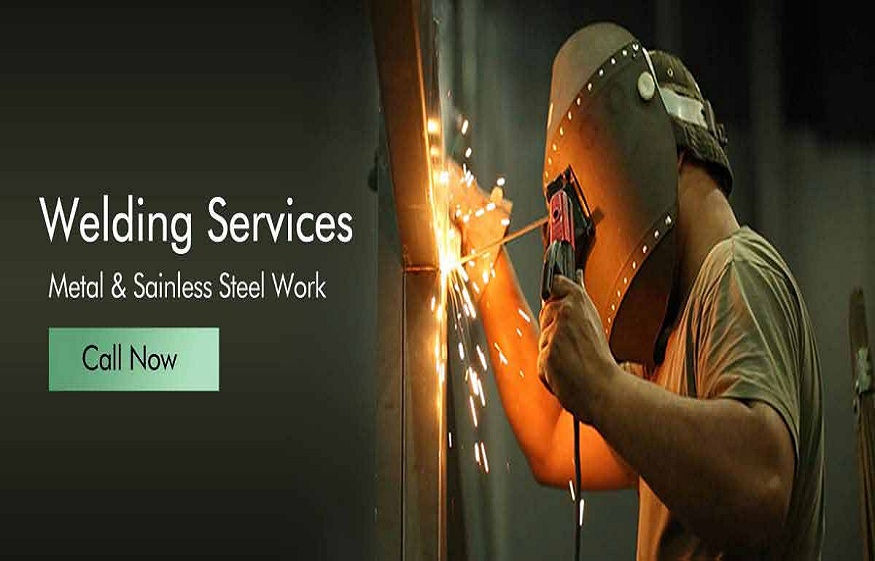The contractors thus take the lead in every construction or development project. These specialists bring experts in numerous fields, resources, and labor to complete all project tasks. From planning the project to its final implementation, the work of contractors is seen as being indispensable for the achievement of the project concerning time and cost management. The best welding contractors would be highlighted among these multiple contractors, as welding metals is an essential investment for almost all construction activities. This blog will guide you through choosing the precise welding contractor for your production needs.
The top factors to choose the best welding contractors for your project
Ensure you appear to several contractors, ask plenty of questions, and thoroughly examine their credentials, popularity, and competencies before making a last preference. It’s worthwhile to spend time in advance to secure the right contractor, which can complete projects on time, with money and complications stored down the road. Here are key points to consider when picking the best welding contractor:
Consider flexibility and adaptability
Projects are never free from unforeseen problems or changes in requirements. In that regard, hiring a welding contractor who is not only adaptable but also flexible in their line of duty is quite significant. Engage the contractor’s capability to adjust to what will most probably change in the course of your project scope, which might include deadlines or unexpected problems that might come along with the job. A contractor willing to adapt to variation while keeping an eye on quality can help keep the project on track and meet your objectives.
Check safety practices and compliance
As much as you want to find out some safety procedures that the contractor follows, then how he’s training his personnel and whether that meets the regulations and standards in the welding industry, any good contractor will need to have a full-fledged safety program to reduce risks and ensure the safety of their employees and any other person on the premises. Inquire also about their safety record. Also, have them confirm the insurance put in place, like liability and workers’ compensation insurance, so that there are no possible liabilities.
Quality assurance processes
Ascertain what quality assurance processes the contractor will use to meet the set high standards. Ask how it will monitor and control the quality of its work during the project lifecycle. A good contractor will have strict inspection procedures that detect defects, ensure the integrity of welds, and remain compliant with expected codes and standards. Inquiry should also be made concerning any certification or accreditation relating to quality management, as this reflects commitment to improvement and customer satisfaction.
Cost and value proposition
Do not make a decision just because they are the lowest bid. Consider, instead, the overall value proposition to be offered by the contractor. Compare and contrast the scope of work, materials, experience, and reputation against the proposed cost. A competitively priced contractor who offers that extra edge in quality, reliability, and customer service may provide a better long-term value for your money. Get detailed quotations from multiple contractors, then compare the scope of work, specifications, and included services as you decide.
Evaluate communication and collaboration
Employ a contractor who gives you time to listen to your requirements, communicates openly and updates you on the process. Check how best the contractor understands what you are looking for in your initial consultation. Ask them about their approach to project management, the timelines, and possible challenges that may arise. Let them make it clear that they answer your questions and provide you with the necessary information. For instance, a contractor committed to communicating well will likely meet your expectations.
Reputation and reviews
Look for the reputation of a welding contractor with past clients. Try to verify if their level of satisfaction was derived from the work the contractor completed. Online platforms, social media, and industry forums are constructive ways to get feedback and insight regarding contractors. Go through more than one review, noting common themes in both good and bad reviews, for the proper decision. Of course, ask the contractor if there are any references to follow up on for a viewpoint from the ground on how those projects were handled.
Analysing the role of welding in construction
The importance of welding thus extends over several aspects of construction, from the basic applications to the other structural ones. For emphasis, here are the most crucial roles of welding in construction:
Innovation and advancements
More importantly, welding technology has advanced over the years and continues to do so, leading to innovations in construction practices. The developments untold for research and development that have occurred over time in this realm bring about great efficiency and precision in the welding processes. These innovations show precision in construction, and new opportunities in architectural design and material utilization have opened up.
Quality assurance and safety
Every welder pledge to show quality and safety during the fabrication of structures. They must work under tight industry regulations and be able to use correct techniques that consequently yield quality welds free of defects such as cracks or porosity. When such stringent measures are considered at each welding step, it could be beneficial for the construction team to avert structural collapse and guarantee safety for humans and workers.
Structural integrity and strength
It allows for metal parts, such as beams, columns, and plates, to be connected so that they act together to form the structure of a building or any other infrastructure facility. Joining materials through welding helps attain controlled loads and uniform distribution to increase strength and stability. Be it skyscrapers, bridges, or residential homes, welding ensures that constructions support environmental forces while retaining their form over the years.
Adaptation to challenging environments
The adaptability of welding is further observed in its ability to withstand the extreme conditions involved in construction, whether underwater or at great altitudes. This has been made possible through specially trained professionals who usually dive using specialized equipment and techniques under submerged conditions. Moreover, by overcoming environmental limitations, welding solutions create infrastructural improvement.
Final words
To sum up, the welding contractors provide individual expertise and ensure quality welds that are accurate and long-lasting for different applications. Such experience should reduce mistakes, hence saving time and costs. Their skilled employees, supported by industrial tools and machines, guarantee high-quality workmanship, effectively meeting industry standards. By combining welding technology and capabilities, the professionals would realize their dream of driving progress and excellence in the circle of construction.

